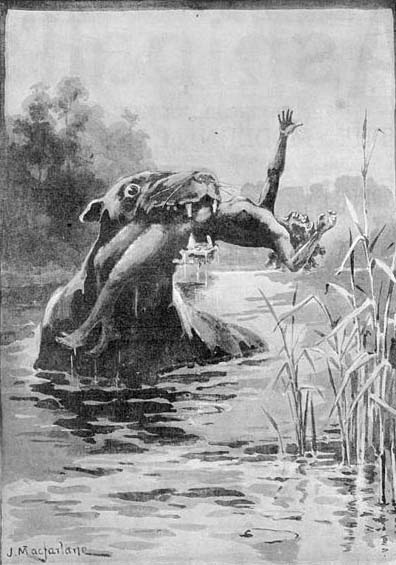Bunyips
Dongus, Kine Pratie, Tunatabah, Wowee Wowee
These Australian water monsters are of different species in various parts of the continent. Some have flat faces like bulldogs and tails like fishes. Others have long necks and beaked heads like emus, with flowing manes like the sea serpent's. Others again have som resemblance to humans, but with terrifying features and feet turned backwards. The difficulty of obtaining precise details about bunyips is easily explained. Most of those who see them never escape to tell the tale, and those who do escape are so incoherent with terror that they can only give garbled accounts of their experiences.

Despite the variations in species, the sound of a bunyip cry is the same in every part of Australia. It is a loud booming roar which reverberates over mangrove swamps, river flats, and the scrub or desert surrounding waterholes. It is heard very strongly during or after long periods of rain, but never during a drought. When bunyip dens dry up in drought seasons, the creatures hibernate by burrowing deep into the mud.
The most perturbing aspect of bunyip infestation, in a comparatively waterless continent, is that they inhabit rivers, billabongs, and other bodies of water, and may thus deny water to Aborigines. There seems no doubt that bunyip diet consists mainly of Aborigines, especially women and children, although the occasional disappearance of white settlers in buyip-haunted areas may show that they have developed a taste for European flesh.
The spread of settlement has depleted the number of bunyips, who cannot cope with irrigation schemes, hydro-electric works, water skiers, water pollution, sewerage works and other disturbances of the water resources of Australia. They react by tipping over fishermen's boats, blocking irrigation pumps, and in other ways, but in the whole they are fighting a losing battle. The improvement of water supplies to Aboriginal communities is depriving bunyips of their natural food supply, and it seems likely that this interesting species will become extinct.
